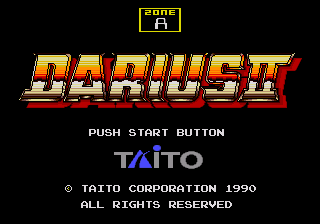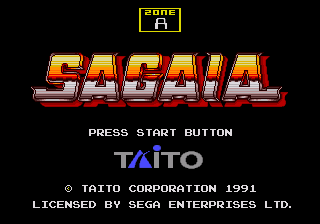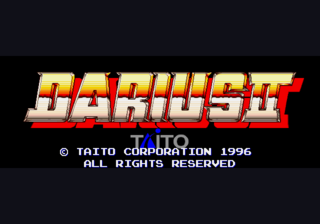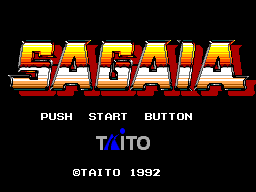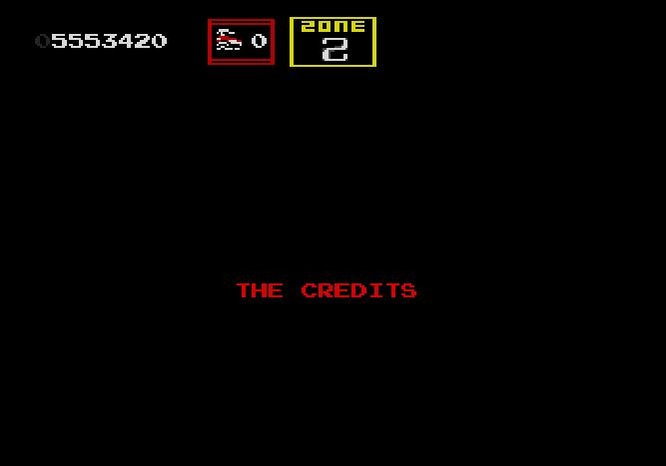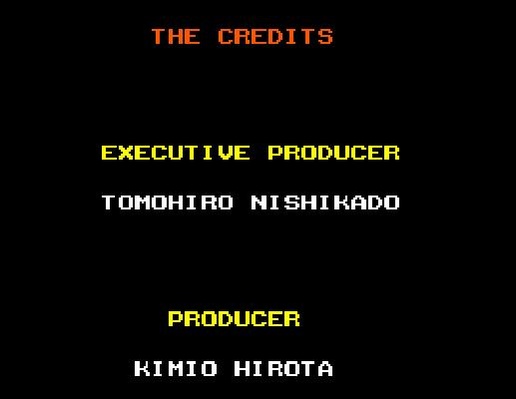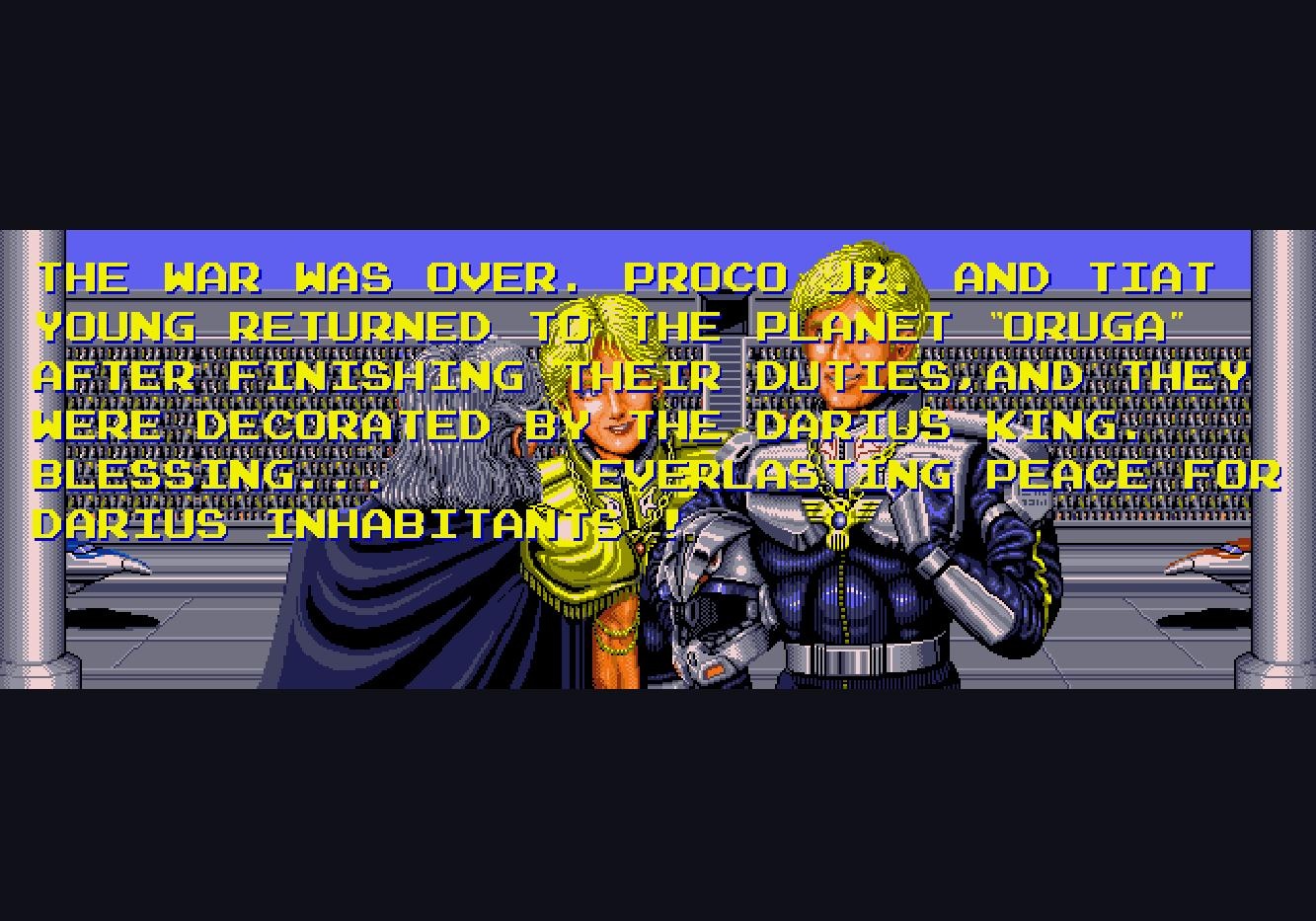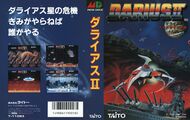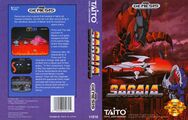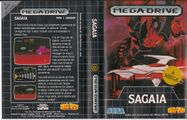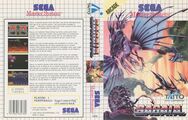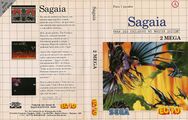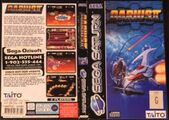Darius II
From Sega Retro
| Darius II | ||||||||||||||||||||||||||||||||||||||||||||||||||||||||||||||||||||||||||||||||
|---|---|---|---|---|---|---|---|---|---|---|---|---|---|---|---|---|---|---|---|---|---|---|---|---|---|---|---|---|---|---|---|---|---|---|---|---|---|---|---|---|---|---|---|---|---|---|---|---|---|---|---|---|---|---|---|---|---|---|---|---|---|---|---|---|---|---|---|---|---|---|---|---|---|---|---|---|---|---|---|---|
| System(s): Sega Mega Drive, Sega Master System, Sega Saturn | ||||||||||||||||||||||||||||||||||||||||||||||||||||||||||||||||||||||||||||||||
| Publisher: Taito (JP) Taito America (US) Taito Sega Enterprises, Ltd. | ||||||||||||||||||||||||||||||||||||||||||||||||||||||||||||||||||||||||||||||||
| Developer: Natsume Co., Ltd. I.T.L | ||||||||||||||||||||||||||||||||||||||||||||||||||||||||||||||||||||||||||||||||
| Distributor: Tec Toy (BR) | ||||||||||||||||||||||||||||||||||||||||||||||||||||||||||||||||||||||||||||||||
| Licensor: Taito | ||||||||||||||||||||||||||||||||||||||||||||||||||||||||||||||||||||||||||||||||
| Original system(s): Arcade boards | ||||||||||||||||||||||||||||||||||||||||||||||||||||||||||||||||||||||||||||||||
| Developer(s) of original games: Taito | ||||||||||||||||||||||||||||||||||||||||||||||||||||||||||||||||||||||||||||||||
| Sound driver: Cube/Dougen Shibuya SCSP/CD-DA (16 tracks) | ||||||||||||||||||||||||||||||||||||||||||||||||||||||||||||||||||||||||||||||||
| Genre: Shooting[1][2][3], Arcade[4] | ||||||||||||||||||||||||||||||||||||||||||||||||||||||||||||||||||||||||||||||||
| Number of players: 1 1-2 | ||||||||||||||||||||||||||||||||||||||||||||||||||||||||||||||||||||||||||||||||
| ||||||||||||||||||||||||||||||||||||||||||||||||||||||||||||||||||||||||||||||||
|
Darius II (ダライアスII), also known as Sagaia outside Japan, is a side-scrolling space shoot 'em up developed by Taito as a direct sequel to the 1986 game Darius. It was originally released in 1989.
The game was ported to several Sega systems, including the Sega Mega Drive and Sega Master System. A port to the Sega Saturn using the original name was released exclusively in Japan and Europe. Conversely the Mega Drive version skipped release in Europe, although it was listed for release.[13][14]
Contents
Story
Proco and Tiat, seeing the planet Darius in ruin, create a new planet called Olga. Their descendents, Proco Jr. and Tiat Young, receive a mayday signal from another civilization born from Darius's ruins, prompting them to take the Silverhawk, a ship, back to save this other civilization from evil forces.
Gameplay
Like the first game, the player controls a space ship shooting at various enemies that resemble fish in a branching path level order.
![]() and
and ![]() shoot; holding them down rapidfires (though there is a break every few bullets).
shoot; holding them down rapidfires (though there is a break every few bullets). ![]() drops bombs. Powerups are collected in the usual shoot em up fashion and there are powerups for both the gun and the bomb dropper. A score bonus is awarded for defeating groups of enemies in a row.
drops bombs. Powerups are collected in the usual shoot em up fashion and there are powerups for both the gun and the bomb dropper. A score bonus is awarded for defeating groups of enemies in a row.
Versions
Stages in the Mega Drive version differ quite a bit from the arcade version: backgrounds are different (e.g. arcade stage B takes place on a rocky planet surface and in a cave, while the Mega Drive version of stage B is mechanized), enemy placement and behavior has been changed and the bosses have also been modified. The Master System version features a reduced amount of stages.
The Saturn version, conversely, simulates the arcade version's wide screen mode utilizing a zoom feature. However, due to running in a lower resolution mode, it can be very difficult to see enemies and bullets.
Comparisons
- Main article: Darius II/Comparisons.
History
Legacy
Darius II was followed by Darius Gaiden in 1994 (originally planned to be released as Darius III).
Production credits
Mega Drive version
- Executive Producer: Takao Ueno
- Producer: Tomohiro Nishikado, Shouji Takahashi
- Director of Software: Yuichiro Kawamuki
- Programmers: Takashi Kuroda, Yoshiaki Ishii, Ayumi Onosaka, Takahisa Horimoto
- Production Designer: Wakadaishou
- Character Designers: Makoto Saitoh, Gota Goto, Keisuke Miyanaga, Nishiyaman
- Team Zuntata
- Music Composed by: Hisayoshi Ogura
- Programmed by: Mira Turbo, Dogen Shibuya
- Game Checker: Kiyoshi Bandou
- Technical Adviser: Hideaki Tomioka, Haruo Suzuki, Kouji Yamazaki
- Special Thanks to: Hidehiro Fujiwara, Akira Fujita, Akira Ohtsuki, Tatsuo Nakamura
- Game Designed by: Yuji Koga
- Directed by: Yuichiro Kawamuki
- © Taito Corporation 1991
- Licensed by: Sega Enterprises Ltd.
Master System version
- Executive Producer: Tomohiro Nishikado
- Producer: Kimio Hirota
- Director: Iku Mizutani
- Programers: Moriyuki Kanaya, Yuji Akita
- Graphics Designers: Isao Inoue, Yasunari Hayami
- Music Director: Iku Mizutani
- Music Composer: Hisayoshi Ogura
- Character Designers: Yasunari Hayami, Isao Inoue
- Original Game Designer: Fukio Mitsuji
- Special Thanks: Yuji Koga, Kohji Yamazaki
- Taito Corporation 1992 All Rights Reserved
Saturn version
- Directed And Produced by: Hidehiro Fujiwara
- Game Designed by: Hidehiro Fujiwara, Takatsuna Senba
- Programmed by: Akira Ohtsuki, Tatsuo Nakamura, Masashi Tsuzura, Shinji Soyano
- Art Designed by: Masami Kikuchi, Takatsuna Senba, Hisakazu Kato
- Cabinet Design: Yoshinori Aiura
- Hardware Designed by: Toshiyuki Sanada
- Team Zuntata
- All Music Composed And Arranged by: Hisayoshi Ogura
- Sound Editor: Yasuhisa Watanabe, Norihiro Furukawa
- Sound Soft Ware: Naoto Yagishita
- Special thanks to: Onijust, Akira Fujita, Takamasa Hori, Masaki Yagi, Masahiko Takaki, Ogr Young, Zippy Aoki, Kouji Tsunekiyo, Hikaru Taniguchi, And Staff Of Kumagaya
- © Taito Corporation 1989 All Rights Reserved
- Taito
- プログラム: 金子 道明, 南雲 泰人, 阿部 央, 関 拓志, 赤座 清敬
- グラフィック: 高須 雄二, 小松崎 成俊, 山田 耕司, 栗原 義昭, 藤原 淳
Digital manuals
Magazine articles
- Main article: Darius II/Magazine articles.
Promotional material
- Main article: Darius II/Promotional material.
Physical scans
Mega Drive version
| 74 | |
|---|---|
| Based on 28 reviews | |
Master System version
| Sega Retro Average | |||||||||||||||||||||||||||||||||||||||||||||||||||||||||||||||||||||||||||||||||||||||||||||||||||
|---|---|---|---|---|---|---|---|---|---|---|---|---|---|---|---|---|---|---|---|---|---|---|---|---|---|---|---|---|---|---|---|---|---|---|---|---|---|---|---|---|---|---|---|---|---|---|---|---|---|---|---|---|---|---|---|---|---|---|---|---|---|---|---|---|---|---|---|---|---|---|---|---|---|---|---|---|---|---|---|---|---|---|---|---|---|---|---|---|---|---|---|---|---|---|---|---|---|---|---|
|
| 70 | |
|---|---|
| Based on 19 reviews | |
| Master System, BR |
|---|
Saturn version
| Sega Retro Average | ||||||||||||||||||||||||||||||||||||||||||||||||||||||||||||||||||||||||||||||||||||
|---|---|---|---|---|---|---|---|---|---|---|---|---|---|---|---|---|---|---|---|---|---|---|---|---|---|---|---|---|---|---|---|---|---|---|---|---|---|---|---|---|---|---|---|---|---|---|---|---|---|---|---|---|---|---|---|---|---|---|---|---|---|---|---|---|---|---|---|---|---|---|---|---|---|---|---|---|---|---|---|---|---|---|---|---|
|
| 57 | |
|---|---|
| Based on 16 reviews | |
| Saturn, PT |
|---|
|
Technical information
- Main article: Darius II/Technical information.
References
NEC Retro has more information related to Super Darius II
|
- ↑ File:DariusII sat jp backcover.jpg
- ↑ 2.0 2.1 https://sega.jp/fb/segahard/ss/soft_licensee2.html (Wayback Machine: 2019-10-02 10:31)
- ↑ 3.0 3.1 https://sega.jp/history/hard/megadrive/software_l.html (Wayback Machine: 2020-07-02 23:21)
- ↑ File:Darius II SMS EU Box.jpg
- ↑ Beep! MegaDrive, "January 1991" (JP; 1990-12-08), page 79
- ↑ 6.0 6.1 Electronic Gaming Monthly, "April 1991" (US; 1991-xx-xx), page 22
- ↑ 7.0 7.1 7.2 7.3 Supergame, "Julho 1992" (BR; 1992-07-xx), page 34
- ↑ Computer Trade Weekly, "" (UK; 1992-06-01), page 19
- ↑ Sega Force, "July 1992" (UK; 1992-06-xx), page 55
- ↑ 10.0 10.1 Sega Power, "September 1992" (UK; 1992-08-06), page 28
- ↑ Computer Trade Weekly, "" (UK; 1996-10-21), page 20
- ↑ 12.0 12.1 Mean Machines Sega, "December 1996" (UK; 1996-11-01), page 72
- ↑ Sega Pro, "June 1992" (UK; 1992-05-21), page 9
- ↑ Computer Trade Weekly, "" (UK; 1992-05-11), page 19
- ↑ File:Sagaia MD credits.pdf
- ↑ File:Sagaia SMS credits.pdf
- ↑ File:DariusII Saturn JP SSEnding.pdf
- ↑ 1700 igr dlya Sega, "" (RU; 2001-xx-xx), page 54
- ↑ 1700 igr dlya Sega, "" (RU; 2001-xx-xx), page 198
- ↑ Aktueller Software Markt, "März 1991" (DE; 1991-02-22), page 125
- ↑ Beep! MegaDrive, "January 1991" (JP; 1990-12-08), page 35
- ↑ The Complete Guide to Sega, "" (UK; 1991-05-xx), page 102
- ↑ Console XS, "June/July 1992" (UK; 1992-04-23), page 128
- ↑ Computer & Video Games, "March 1991" (UK; 1991-02-16), page 88
- ↑ Entsiklopediya luchshikh igr Sega. Vypusk 1, "" (RU; 1999-xx-xx), page 304
- ↑ Mean Machines: The Essential Sega Guide, "" (UK; 1993-11-18), page 35
- ↑ Games-X, "31st May-6th June 1991" (UK; 1991-05-31), page 36
- ↑ Génération 4, "Février 1991" (FR; 1991-xx-xx), page 94
- ↑ Hippon Super, "January 1991" (JP; 1990-12-04), page 41
- ↑ Joystick, "Février 1991" (FR; 1991-0x-xx), page 118
- ↑ Sega Mega Drive Advanced Gaming, "January 1993" (UK; 199x-xx-xx), page 91
- ↑ Mega Drive Fan, "March 1991" (JP; 1991-02-08), page 99
- ↑ Mega Action, "June 1993" (UK; 1993-05-20), page 65
- ↑ Mega Play, "March/April 1991" (US; 1991-04-xx), page 44
- ↑ MegaTech, "Xmas 1991" (UK; 1991-12-06), page 77
- ↑ Mean Machines, "May 1991" (UK; 1991-05-01), page 76
- ↑ Mean Machines Sega, "October 1992" (UK; 1992-09-xx), page 138
- ↑ Power Play, "3/91" (DE; 1991-02-15), page 140
- ↑ Sega Power, "October 1991" (UK; 1991-09-05), page 53
- ↑ Sega Pro, "December 1991" (UK; 1991-11-21), page 21
- ↑ Sega Pro, "April 1993" (UK; 1993-03-11), page 64
- ↑ Sega Saturn Magazine, "September 1995" (JP; 1995-08-08), page 85
- ↑ Tricks 16 bit, "Tricks Sega Gold 800 igr" (RU; 1998-03-20), page 151
- ↑ Consoles +, "Juillet/Août 1992" (FR; 1992-0x-xx), page 118
- ↑ Game Power, "Settembre 1992" (IT; 1992-0x-xx), page 48
- ↑ Hobby Consolas, "Junio 1992" (ES; 1992-0x-xx), page 68
- ↑ Joypad, "Mars 1992" (FR; 1992-02-1x), page 84
- ↑ Joystick, "Mars 1992" (FR; 1992-0x-xx), page 136
- ↑ Mega Force, "Janvier 1992" (FR; 1992-01-15), page 95
- ↑ Micromanía (segunda época), "Julio 1992" (ES; 1992-0x-xx), page 79
- ↑ Mean Machines, "September 1992" (UK; 1992-08-27), page 62
- ↑ Mean Machines Sega, "October 1992" (UK; 1992-09-xx), page 136
- ↑ Player One, "Avril 1992" (FR; 1992-04-10), page 66
- ↑ Play Time, "7/92" (DE; 1992-06-03), page 95
- ↑ Sega Pro, "July 1992" (UK; 1992-06-18), page 42
- ↑ Sega Pro, "April 1993" (UK; 1993-03-11), page 72
- ↑ Sega Force, "1/92" (SE; 1992-xx-xx), page 18
- ↑ Sega Force, "July 1992" (UK; 1992-06-xx), page 54
- ↑ Supersonic, "Juillet/Août 1992" (FR; 1992-xx-xx), page 22
- ↑ Video Games, "7/92" (DE; 1992-06-24), page 51
- ↑ CD Consoles, "Novembre 1996" (FR; 1996-xx-xx), page 162
- ↑ Famitsu, "1996-06-14" (JP; 1996-05-31), page 1
- ↑ Fun Generation, "08/96" (DE; 1996-07-10), page 80
- ↑ GameFan, "Volume 4, Issue 8: August 1996" (US; 1996-xx-xx), page 15
- ↑ Intelligent Gamer, "August 1996" (US; 1996-0x-xx), page 90
- ↑ Joypad, "Juillet/Août 1996" (FR; 1996-0x-xx), page 72
- ↑ Joypad, "Novembre 1996" (FR; 1996-1x-xx), page 79
- ↑ MAN!AC, "08/96" (DE; 1996-07-17), page 48
- ↑ Mega Force, "Novembre/Décembre 1996" (FR; 1996-1x-xx), page 93
- ↑ Player One, "Novembre 1996" (FR; 1996-xx-xx), page 124
- ↑ Saturn Fan, "1996 No. 12" (JP; 1996-05-24), page 163
- ↑ Saturn Fan, "1996 No. 16" (JP; 1996-07-19), page 84
- ↑ Sega Power, "December 1996" (UK; 1996-10-24), page 60
- ↑ Sega Saturn Magazine, "1996-09 (1996-06-14)" (JP; 1996-05-24), page 232
- ↑ Sega Saturn Magazine, "Readers rating final data" (JP; 2000-03), page 15
| Darius II | |
|---|---|
|
Main page | Comparisons | Maps | Hidden content | Magazine articles | Reception | Promotional material | Region coding | Technical information | Bootlegs | |
| Darius games for Sega systems | |
|---|---|
| Darius II (1990) | Darius (2019) | Darius Extra Version (2020) | |
| Sagaia (1992) | |
| Darius Gaiden (1995) | Darius II (1996) | |
- 1-2 player games
- JP Mega Drive games
- All JP games
- US Mega Drive games
- All US games
- BR Mega Drive games
- All BR games
- Mega Drive games
- 1990 Mega Drive games
- All 1990 games
- Mega Drive shoot-'em-up games
- All shoot-'em-up games
- EU Master System games
- All EU games
- PT Master System games
- All PT games
- UK Master System games
- All UK games
- AU Master System games
- All AU games
- BR Master System games
- Master System games
- 1992 Master System games
- All 1992 games
- Master System shoot-'em-up games
- JP Saturn games
- EU Saturn games
- DE Saturn games
- All DE games
- PT Saturn games
- UK Saturn games
- PL Saturn games
- All PL games
- AU Saturn games
- Saturn games
- 1996 Saturn games
- All 1996 games
- Saturn shoot-'em-up games
- All games
- Credits without reference
- Darius II
- Darius (franchise)
